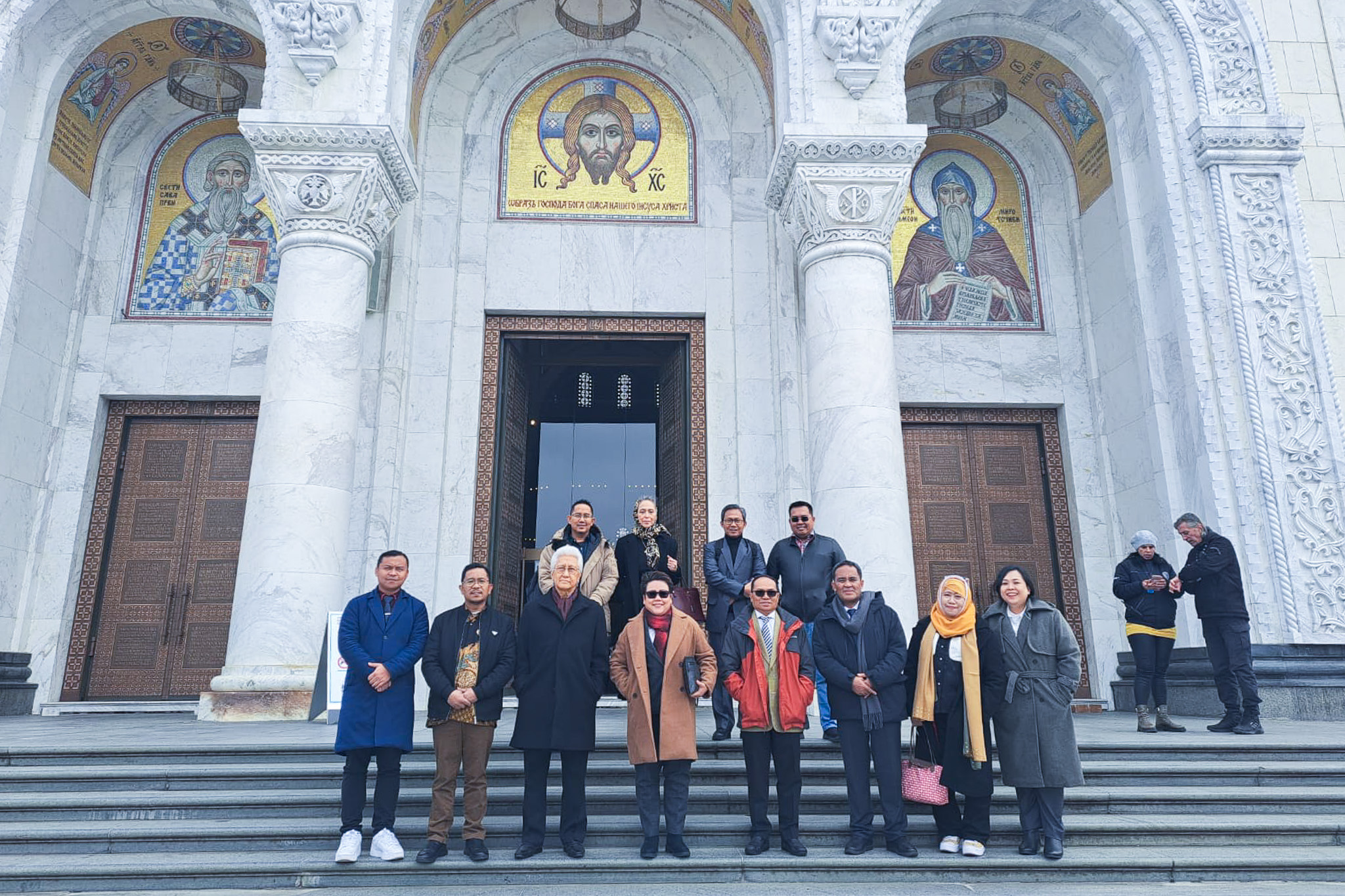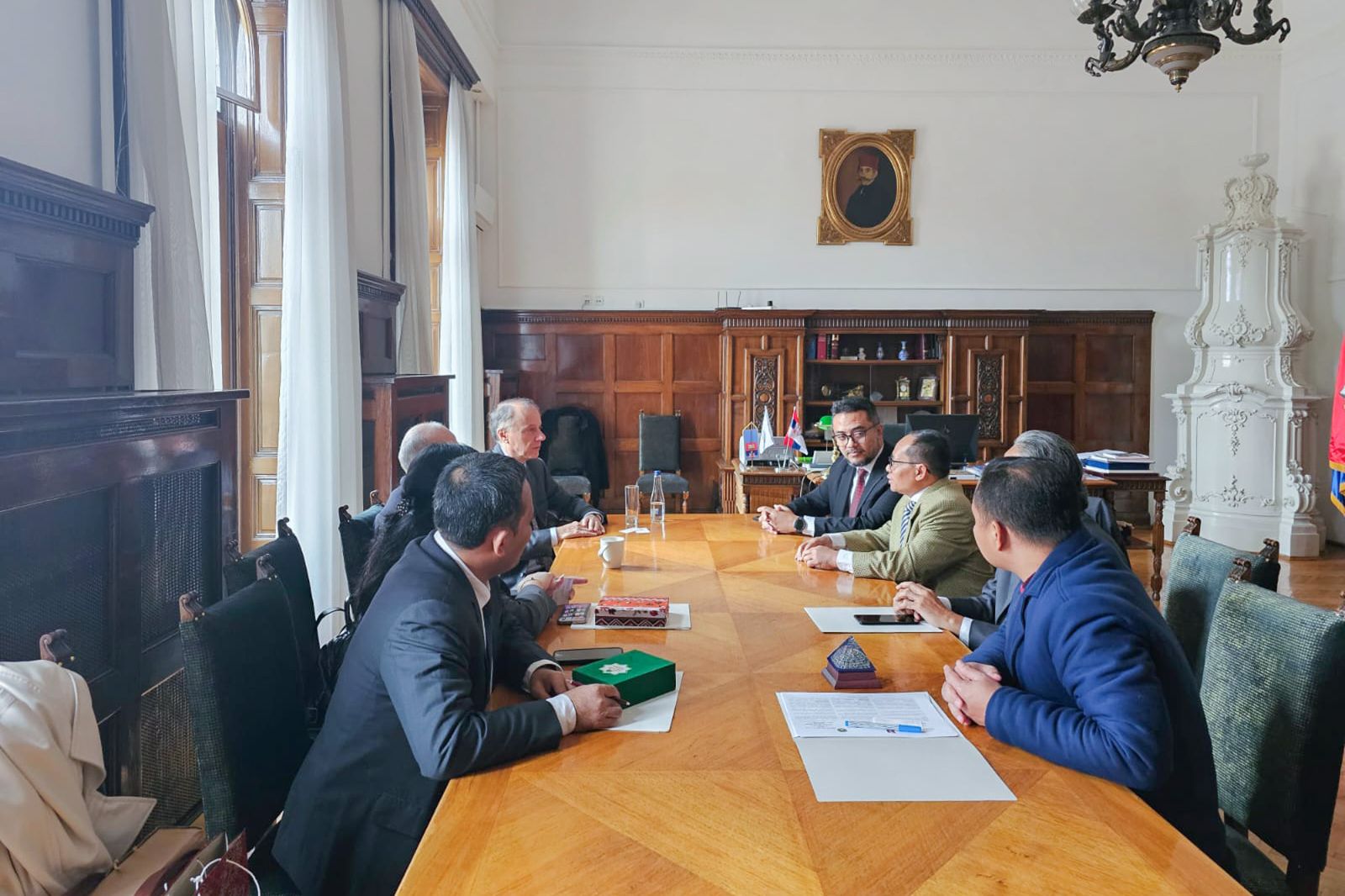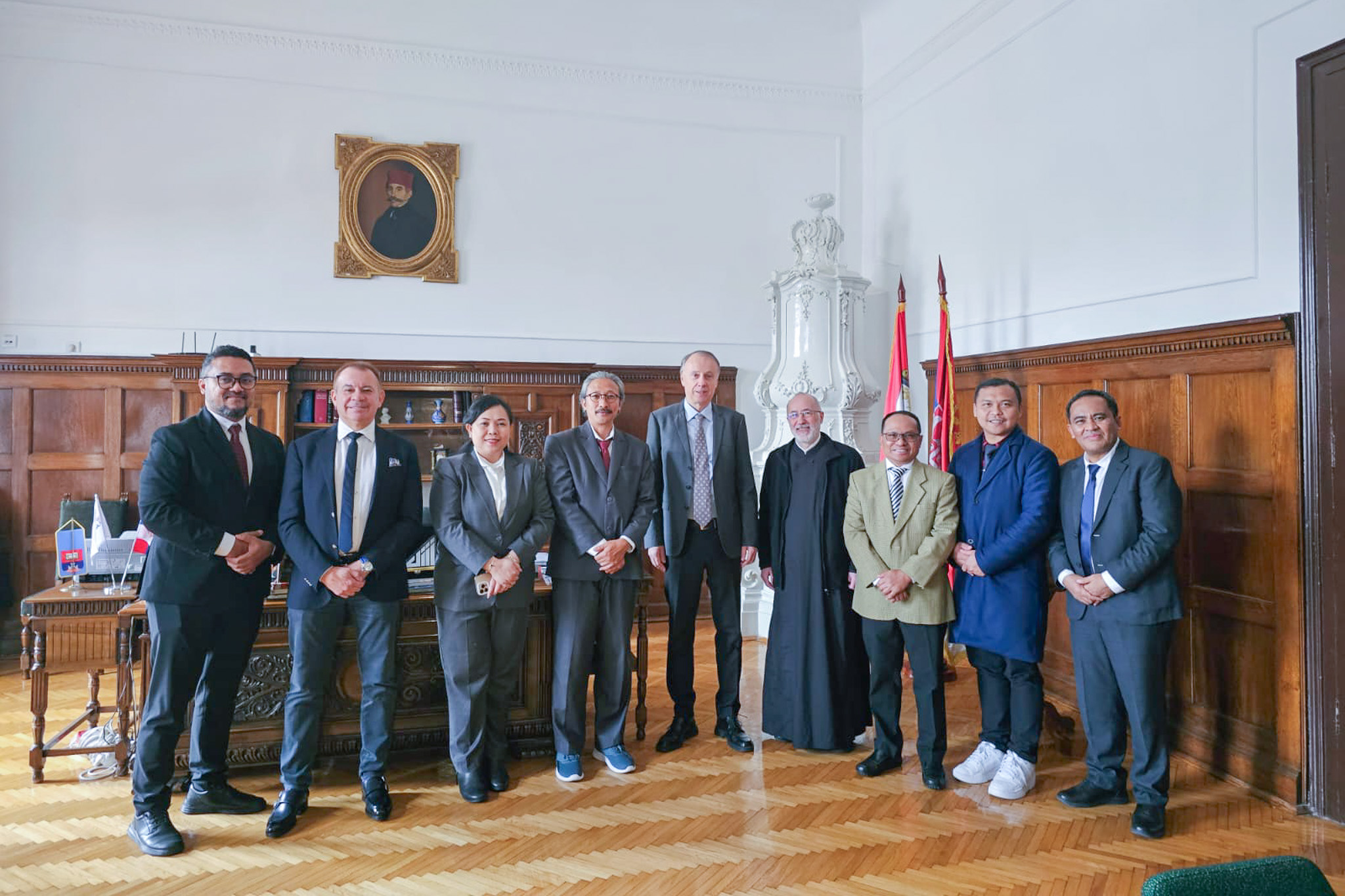Fostering Interfaith Connections among Foreign Students in Indonesia
November 16, 2024By Khizer Hayat*
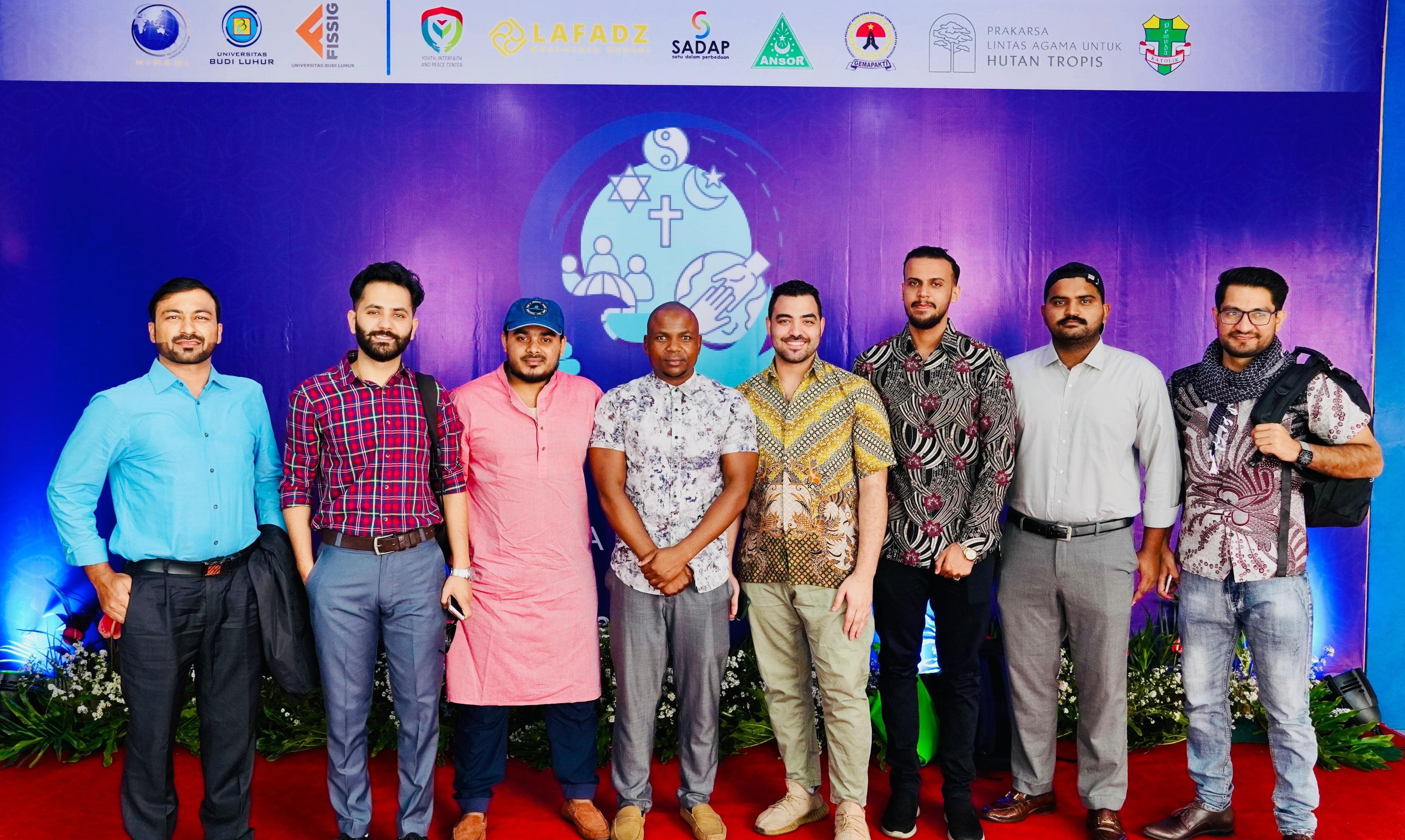
In a world that often feels divided, it is amazing how simply listening to one another can bring us closer. Recently, I, along with a group of foreign students from Universitas Islam Internasional Indonesia (UIII), had the chance to experience this firsthand during an interfaith dialogue organized by Universitas Budi Luhur (UBL) in Jakarta. The event, themed "Constructing Universal Values Towards Religious Moderation," was not just about learning, it was about truly connecting across differences.
As an MA Education student from Pakistan, I joined students from various backgrounds including those from Bangladesh, Egypt, Malawi, Afghanistan, and Tanzania. At the event, we also met with students from different religious backgrounds including Islam, Christianity, Catholics, Hindu and Buddhism. We each brought our own experiences and stories, united by the goal of understanding others’ perspectives on faith and life.
Our conversations touched on many issues we all care deeply about, like poverty, education, and the impact of climate change. It was powerful to see that, despite our different backgrounds, we shared similar hopes and concerns. We realized that, as students, we can contribute to change, not only by learning but by using that knowledge to help our communities.
A highlight of our time together was visiting some of Jakarta’s famous religious sites: the Satya Bhuwana Temple, Jakarta Cathedral, and the Istiqlal Mosque. Each place welcomed us, showing us a glimpse of Indonesia’s rich culture and its tradition of coexistence. Walking through these spaces, we felt both respect for each other’s beliefs and a deep sense of connection. We learned that faith, regardless of its form, can bring us closer when it is rooted in mutual respect.
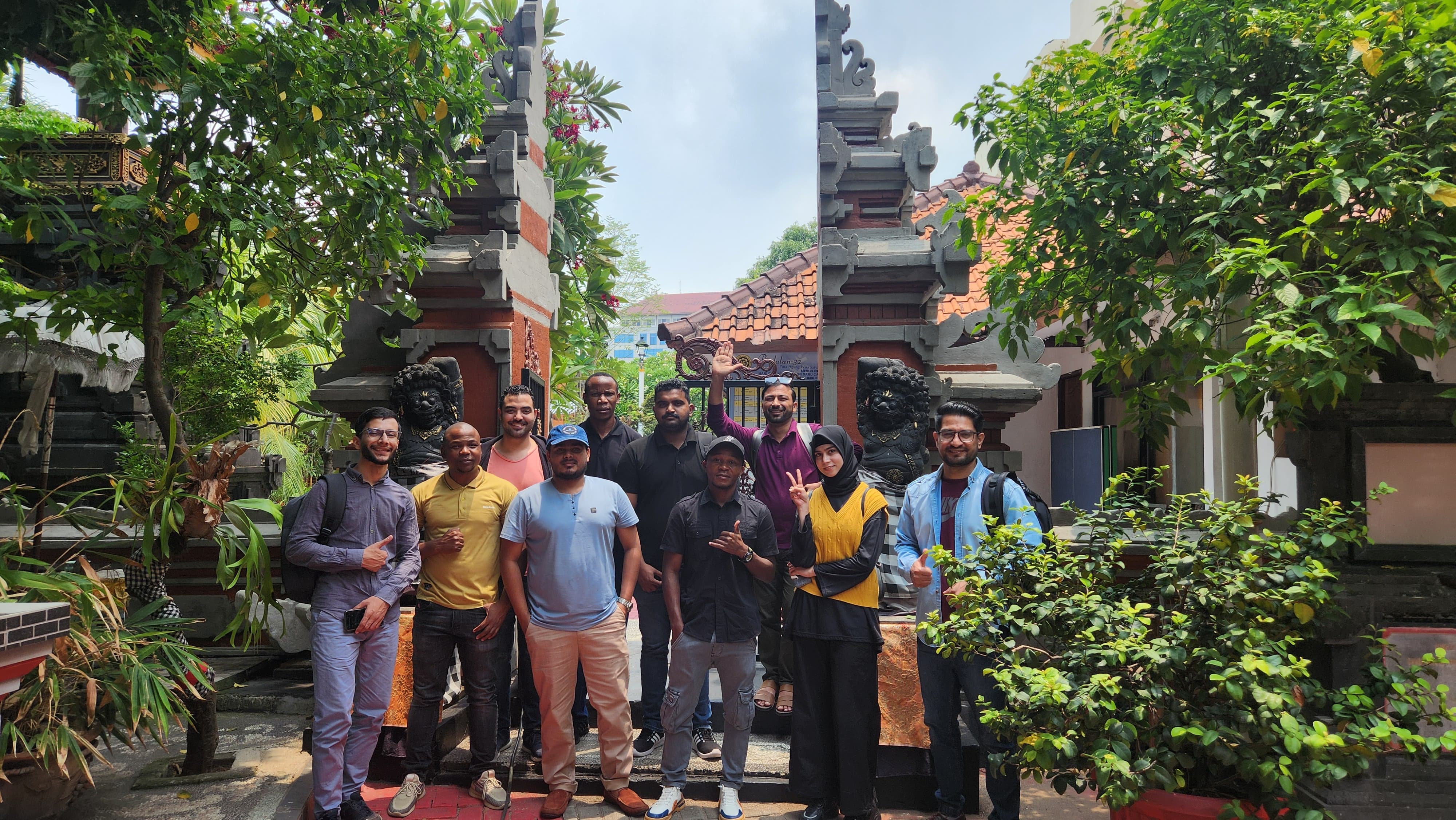
This journey left us inspired to bring the same spirit of understanding back to our home countries. We talked about the idea of more exchange programs between UIII and UBL, where students could regularly come together, work on projects, and share their cultures. Imagine if students could learn, not just in classrooms, but by living and working together on real issues. This hands-on experience could build even stronger bonds between us.
Looking back, we came away with a simple but powerful realization: we don’t have to agree on everything to be united. Each of our faiths calls for compassion, and when we listen and understand each other, we find our shared humanity. This journey planted a seed of hope in each of us—a hope that, with small steps, we can build a world where understanding and kindness are stronger than our differences.
____
*) Khizer Hayat, from Pakistan, is an MA student in the Faculty of Education at UIII. Email: khizer.hayat@uiii.ac.id
- UIII Extends Application Deadline for 2025 International Admissions
- What Does Eid al-Fitr Mean for the UIII Academic Community?
- UIII PhD Scholar Ararat Kostanian Delivers Lecture at Armenia's Yerevan State University
- Swedish Ambassador to Indonesia Applauds UIII’s Vision, Explores Future Collaboration
- Depok Mayor Supports UIII as the Green Lung of Depok and Beyond
- Depok Mayor Pledges to Build Performance Hall at UIII
- New Parking Facility Launched, Part of UIII-Sentra Medika Hospital Partnership
- Yogyakarta’s UII Won 1st FisFastFest’s Clash of Campuses
- Vice Minister of Religious Affairs Praises UIII as a Global Hub for Islamic Education
- Hurray!! UIII Wins Football Championship
